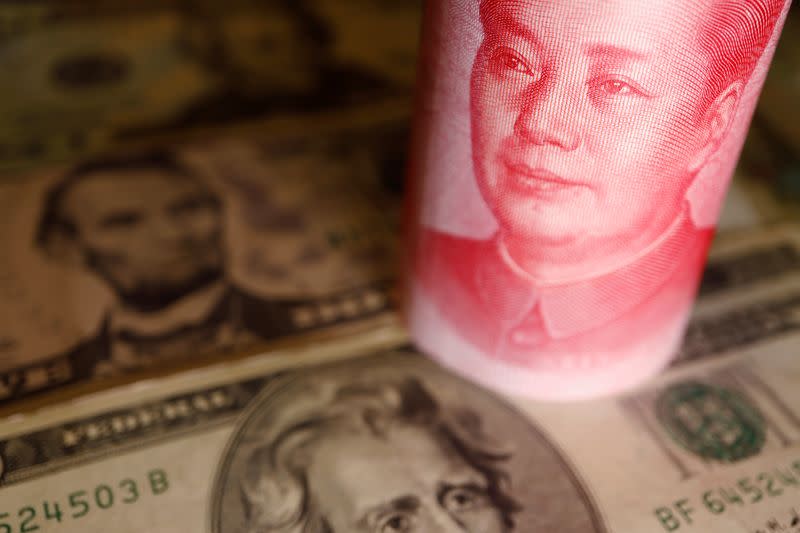Yen steadies, dollar slips as China reaches for stimulus

By Tom Westbrook
SINGAPORE (Reuters) - A surging yen steadied on Monday as Japan's incoming prime minister signalled monetary policy should remain accommodative, while the dollar slipped on commodity currencies underpinned by investor expectations of a turnaround in China's economy.
Japan's yen had leapt on Friday when Shigeru Ishiba, a former defence minister and erstwhile critic of aggressively easy policy won the leadership of the ruling Liberal Democratic Party, which controls parliament and will vote him into office.
The yen slipped about 0.4% to 142.75 per dollar after jumping 1.8% on Friday. Ishiba told public broadcaster NHK that from the government's standpoint, policy must remain accommodative as a trend given current economic conditions.
Analysts said that was enough to pause the sharp rise in the yen following his victory and that the likelihood of a snap election in the coming months - something Ishiba hinted at on Sunday - could weigh on the yen at least over the short term.
"An election basically takes the Bank of Japan out of the equation until December...a marginal yen negative," said Ray Attrill, National Australia Bank's head of foreign exchange strategy.
Elsewhere the euro was stable at $1.1172 and sterling traded at $1.3381 with markets looking to U.S. jobs data on Friday as the next major data point that could guide the pace of U.S. interest rate cuts.
European inflation data on Tuesday and Chinese data due later on Monday are also keenly awaited.
The Australian and New Zealand dollars traded near the 2024 highs they struck on Friday as rate cuts and expectations of fiscal support in China raised hopes of an improvement in the slowing economy.
The Australian dollar rose 0.3% to $0.6920, after climbing to a 20-month high of $0.6937 on Friday. The New Zealand dollar was up 0.3% at $0.6360 after hitting its highest since December on Friday.
Last week the U.S. Federal Reserve's favoured inflation measure showed inflation running at a pretty benign 2.2% for the 12 months to August, sending U.S. yields and the dollar lower.
"The trend over next year or so is for the dollar to go down," said Commonwealth Bank of Australia strategist Joe Capurso.
"Inflation is under control. Interest rates are going down and that's good for the global economic outlook, good for risk taking and good for commodity currencies like the Aussie."
Beijing's raft of stimulus measures drove a rally in China's yuan last week, even as interest rates were lowered, as investors piled into Chinese stocks which notched their best week in a decade. The yuan broke the psychological 7-per-dollar mark in offshore trade on Friday and was last at 6.9761 ahead of the onshore open.
(Reporting by Tom Westbrook.; Editing by Shri Navaratnam)
